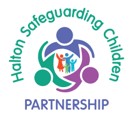Strengthening Relationships
In Halton we are committed to supporting families to build strong relationships for the sake of their children. Relationships really matter and when parents get on, their children do better.
Conflict between parents is a normal part of relationships and family life. Not all conflict is damaging, but when conflict between parents is frequent, intense and poorly resolved, it can put children’s mental health and long term outcomes at risk. Conflict can be present between parents whether they are together or separated.
Professionals who come into regular contact with children and/or families are well placed to identify, explore and support those experiencing destructive conflict and reduce this potential negative impact.
Parental conflict can affect children in a number of ways
- Emotionally – low mood, anxiety
- Behaviourally – increase risk taking, running away
- Socially – anti social behaviour
- Academically – truanting, exclusions
The normal pressures of busy family life can pile on the stress and trigger arguments and conflict. Typically arguments might include things like:
- Working hours
- House work / household tasks
- How we parent the children
- What other family members think / say
- Lack of intimacy and time as a couple
- Arrival of a new baby
- Lack of sleep
- Dealing with own / children’s / family members health needs
- Financial problems such as job loss
- Alcohol or substance misuse
- Transition to parenthood
- Poor parental mental health
- Children with SEND
- Children starting primary or secondary schools
- Parental separation or divorce
Having a distressed relationship with your child’s other parent may also impact on the way we parent. Our parenting may be harsher or more unpredictable if we are distracted by the arguments or tension with our child’s other parent.
Whether we are together, separated or divorced we may all have arguments or disagree sometimes. But if we are having conflict which is frequent and intense it can be harmful to both children and to us as adults. All couples and co-parents may experience challenges in their relationships but when that conflict is poorly resolved and we don’t find solutions it can be damaging.
Parental conflict is not the same as Domestic Abuse. It does not involve coercive control, emotional, physical, financial or sexual abuse and does not involve either party feeling fearful of the other. Parental conflict is when you struggle to get on without disagreeing but that the relationship is an equal one.
Tips for building Stronger Relationships
If you can commit to improving communication with your child’s other parent and putting your child first you can make a real difference.
| Try to Avoid | Instead Try To |
|---|---|
|
|
Below are a number of links which provide information and support on how to maintain healthy relationships, how to recognise parental conflict, tools and resources to help manage parental conflict and where to go for any further support you may need.
- Relate – has a wealth of advice on coronavirus and relationships, and also advice on how to handle arguments with your partner.
- Cafcass (for those co-parenting and with child arrangement agreements in place) – coronavirus guidance for children and families.
- Family Rights Group – advice for parents and families with a child in the care system.
- One plus One – relationship support and forums, see also their Facebook page, and Twitter.
- See it Differently – four short video clips to help parents recognise what conflict may look like.
- Build Sound Minds – a campaign for parents to help improve their and their child’s emotional wellbeing.
